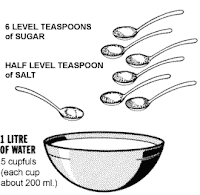Various studies have shown that intermittent fasting-reducing food & drink intake periodically can be healthy tip for us. One of the most popular intermittent fasting diets is 5:2 Fast Diet. This fast diet is associated with eating the prescribed amount of calorie for 5 days a week but minimizing calorie to 25% for the rest of 2 days (to 500 calorie/day for women & 600 calorie/day for men).
The experts says that 5:2 Fast Diet plan helps in losing weight along with many other health benefits. The people who do intermittent fasting can see the improvements in their blood pressure, cholesterol level and insulin sensitivity.
The benefits associated with intermittent fasting
During fasting the body is not able to get energy from food, it dips into glucose stored in liver & muscles. This process commence around 8 hours after having the last meal. When the body completely used the stored glucose then it starts burning fat as a source of energy which finally results into weight loss.
 A detoxification process also occurs during intermittent fasting as the toxins stored in the body fat starts dissolving and removing from the body. Prolonged fasting may also helps in regenerating the immune cells.
A detoxification process also occurs during intermittent fasting as the toxins stored in the body fat starts dissolving and removing from the body. Prolonged fasting may also helps in regenerating the immune cells.
When you are fasting, your system saves energy. One thing that your body does to save energy is to recycle a lot of immune cells. Experts also say that the body got rid of the parts of system that might have broken down or old, the inefficient parts during fasting.
The risks associated with intermittent fasting
As you have read the benefits associated with intermittent fasting above, there are many risk factors as well involved with it. The most common risk factor of fasting is dehydration, as the body does not get any fluid from food. Hence it is very important for people who are fasting to be properly hydrated during fasting period. Fasting can be a big challenge for them who are use to have breakfast, lunch, dinner & snacks in between. For them, fasting can increase the stress level, dehydration, hunger, lack of sleep and ultimately leads to headaches.
Intermittent fasting can also leads to heartburn. Lack of food causes reduction in stomach acids which helps in digesting food & destroying bacteria. But the worst parts during fasting is that the smell of food or even thinking about it can enhances the production of stomach acid which in turn leads to heartburn.










 · Mustard oil works better on teeth when it applied with lemon drops & a bit of salt. When you brush your teeth with this mixture, you will get natural shine in your teeth. Mustard oil also makes your teeth stronger.
· Mustard oil works better on teeth when it applied with lemon drops & a bit of salt. When you brush your teeth with this mixture, you will get natural shine in your teeth. Mustard oil also makes your teeth stronger.


 The snorer may also wake up from sleep due to snoring habit, even though he/she may not realize it.
The snorer may also wake up from sleep due to snoring habit, even though he/she may not realize it. Osteoporosis is a disease in which an individual’s bone density becomes low and the bones quality starts reducing rapidly. There are many complications that one has to face if he/she has the symptoms of osteoporosis. Osteoporotic fractures not only leads to extreme pain but also many other severe consequences. Let’s have a look at the complications related to osteoporosis.
Osteoporosis is a disease in which an individual’s bone density becomes low and the bones quality starts reducing rapidly. There are many complications that one has to face if he/she has the symptoms of osteoporosis. Osteoporotic fractures not only leads to extreme pain but also many other severe consequences. Let’s have a look at the complications related to osteoporosis.











